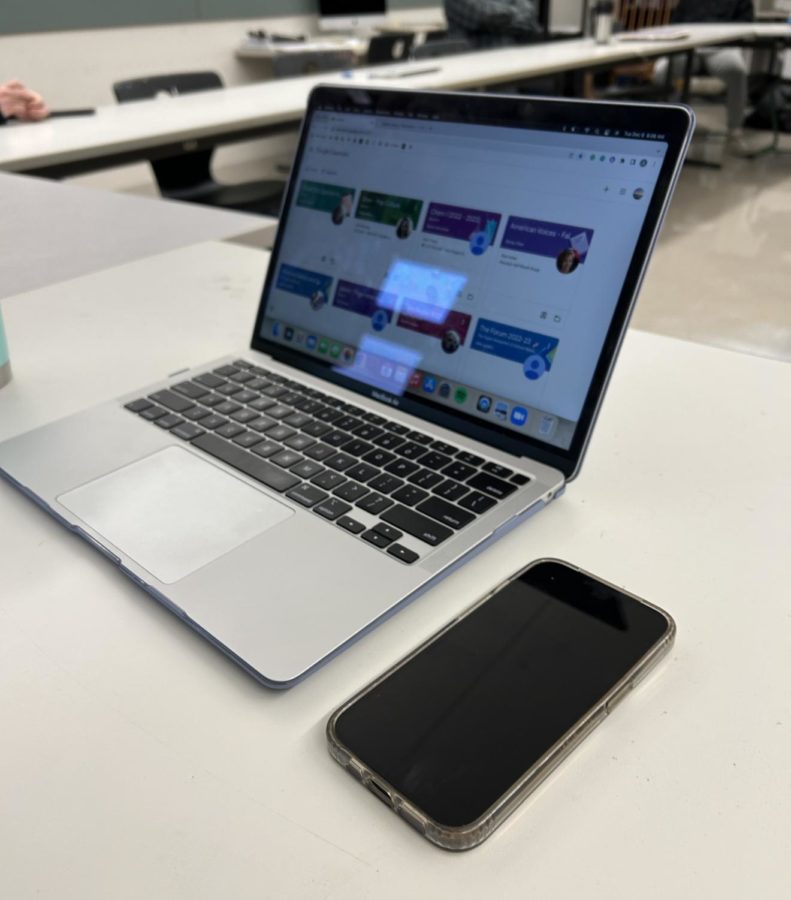L-S Community Members Unsure about the Role of Cell Phones in School
Cell phones are a ubiquitous part of our lives. While they can be a powerful tool for accessing information, some fear they provide too great a distraction for students during the school day. The L-S school committee is currently weighing a school-wide cell phone policy to counter excessive phone use in class.
Some members of the school committee support a school-wide cell phone policy. One such member, Candace Miller, explains, “The school committee’s purpose is really to focus on how [to] improve student performance and student outcomes.” She stresses the need for additional research and feedback, but she personally supports a school-wide cell phone policy, expressing concern that cell phone use has become a hindrance to learning, “Things are challenging… school is challenging, the next stages, the next steps are challenging, and we have access to these things that just take our attention so easily, and unless we put in some kind of controls… personally or otherwise we decrease the chances that we can be successful.” She adds that, rather than being a tool for bringing people together, cell phones have instead isolated students from building real-world relationships.
Current policy leaves classroom cell phone use up to teacher discretion but prohibits the use of phones without teacher discretion. As a result, there are different policies across classes. Language teacher Désirée Butter explains, “I hate to think we need to regulate anything… L-S has been known for being a school where personal freedoms are important, where teaching personal responsibility is key to shaping independent thinkers who assume responsibilities for their actions.” However, there is growing concern among educators within the school that cell phone use has gotten out of hand. She adds, “Something has changed and I can see and read the frustration the adults experience to be heard and the blunt disregard for rules”.
Dr. Miller of the school committee believes that the benefit of a school-wide policy would take enforcement pressure off of teachers and remove students’ temptation to check their phones. Some parents, however, believe that students need to learn to focus even in the face of distraction. One parent, speaking anonymously, reports, “Kids today are certainly growing up with more distractions at their fingertips but also so much more information. The nature of the way we access information has fundamentally changed and I don’t see us going back. I think it is our responsibility to teach kids how to manage the distraction in the face of a new world.”
Students also express some concern about further restricting cell phone use in class. “It can be helpful to have ready access to school resources/materials without having to get out my laptop when that is not needed,” says Theo Bowne. Other students said that having their phones sequestered until class is over is going too far, raising concerns about theft or needing their phone in an emergency.
The school committee anticipates more information coming out later this school year.






